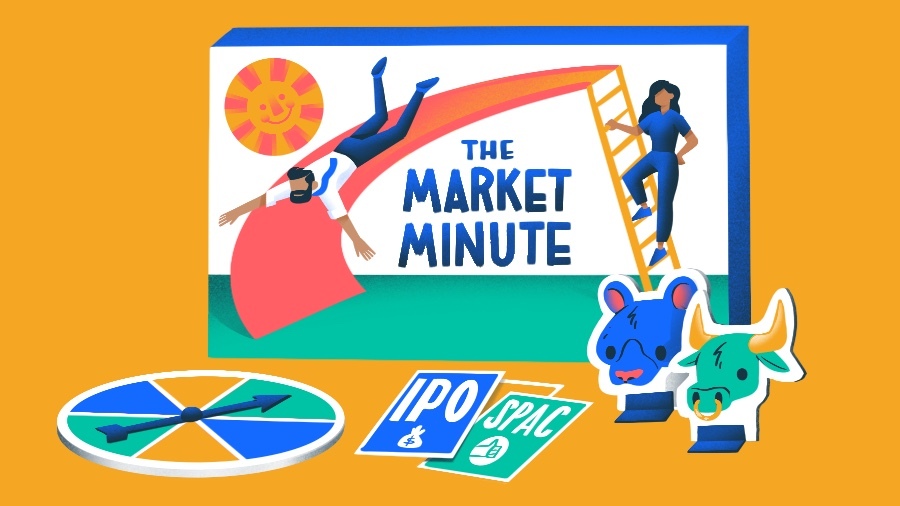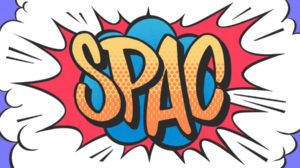If you’ve been keeping tabs on the public markets the past few weeks, you’ve probably noticed that the number of SPACs forming and filing for initial public offerings has slowed down dramatically.
Subscribe to the Crunchbase Daily
It’s a quick turn of events, considering how hot SPACs have been the past few months. Back in February, it looked like SPAC IPOs would outpace traditional IPOs this year. And in 2021 so far, 312 SPAC IPOs have been completed, generating more than $101 billion in gross proceeds, shattering all previous records, according to SPACInsider, a website that tracks such deals.
But all that SPAC activity has drawn the attention of the U.S. Securities and Exchange Commission, and increasingly, it looks like regulation could be on the horizon.
Last week, Reuters reported that the SEC is considering issuing new guidance to curb the revenue projections often given by companies going public through SPACs. The ability to provide revenue projections to investors was a key differentiator and benefit of going public through a SPAC, especially for pre-revenue companies in industries like electric vehicles, since the traditional IPO process doesn’t allow companies to make predictions about future sales.
The SEC also recently issued guidance that would categorize warrants as liabilities: Warrants give warrant-holders the right to buy a certain amount of shares at a specific price at some point in the future. If the proposal becomes law, both existing SPACs and deals that are in the works would have to re-do their financials in regulatory filings for the value of warrants, per CNBC.
“There was a ton of euphoria about SPACs over the last nine months or so, or the last year,” said Ran Ben-Tzur, a partner at the law firm Fenwick & West.
But since the SEC has signaled it may take a harder stance on revenue projections and require warrants to be categorized as liabilities, more companies may reconsider the SPAC route, he said.
“Both of those statements in combination have, number one, caused companies to reassess if SPACs were the right path with all the regulatory scrutiny, and it’s had a tangible impact on the SPAC market,” Ben-Tzur said.
The SEC’s guidance on warrants, for example, has caused a “mass scramble” for those companies to reassess their accounting, Ben-Tzur said.
And the statement about revenue projections is also making companies second-guess the perceived benefit of going public through a SPAC, and will likely prompt many pre-revenue companies to forgo the SPAC route, Ben-Tzur said.
Many people perceive that revenue projections “don’t have the same heightened liability in the SPAC context because of the safe harbor,” Ben-Tzur said. “And again, it wasn’t a formal position of the SEC but I think it’s produced enough uncertainty in the market that people are much more attuned that these projections will be heavily scrutinized and subject to a lot of litigation down the road if these companies don’t end up hitting those projections.”
Regulators are stepping in because so many SPACs have been formed and now are chasing “poor quality deals,” according to Marcus New, CEO of InvestX Capital. There’s a bit of a supply-and-demand issue, and now the incentives for many promoters is to do a deal than to do a high-quality deal. Otherwise, they lose money.
According to New, there are essentially three types of companies that go public. The very best quality are companies like Airbnb, he said. They’re market leaders, well-managed and have a lot of investor interest. Those companies almost certainly wouldn’t use a SPAC to go public because they don’t want the dilution that comes with such merger deals. Other high-quality companies (think SoFi and 23andMe) may use a SPAC to get to market faster and take very little financing risk. They can have money certainty with a higher valuation through a SPAC.
The third group often consists of lower-quality companies being chased by SPAC promoters who just want to get a deal done, New said. “The promoters who have put the SPAC together have an incentive to do a deal, so that valuation doesn’t matter so much,” he said.
But then to get others hyped about the company, they have to talk about growth projections for their target companies. That’s where regulators are stepping in to curb things.
If more SPAC regulations are implemented, valuations and deal volume will be impacted, New said.
“If projections get really derailed with these regulations … the valuations of these companies are going to come down pretty dramatically,” New said in an interview. “The second piece that’s going to happen is that a lot of SPACs probably won’t get deals done.”
Illustration: Dom Guzman

Stay up to date with recent funding rounds, acquisitions, and more with the Crunchbase Daily.


![Illustration of stopwatch - AI [Dom Guzman]](https://news.crunchbase.com/wp-content/uploads/Halftime-AI-1-470x352.jpg)





67.1K Followers